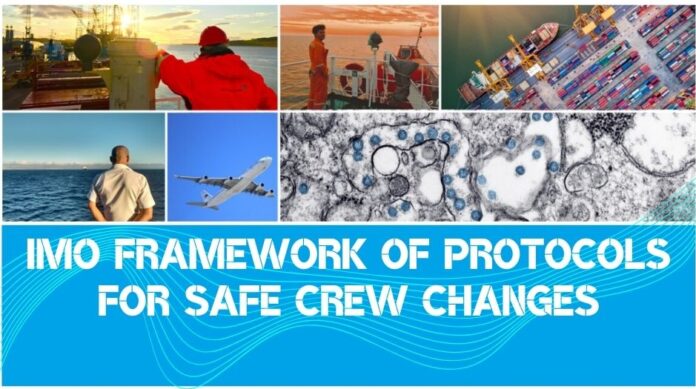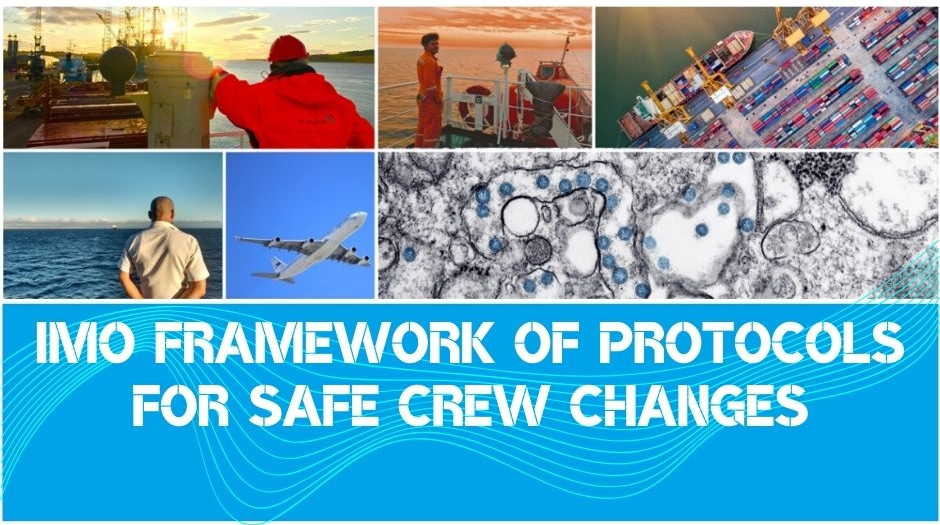
(www.MaritimeCyprus.com) The International Maritime Organization (IMO) has sent a recommended framework of protocols for ensuring safe ship crew changes and travel during the COVID-19 pandemic to all IMO member-states, the UN and other maritime stakeholders.
The need for ships to change crews and for seafarers to fly home at the end of their periods of service have emerged as two of the biggest challenges facing the shipping industry as a result of the COVID-19 pandemic. Now, IMO Secretary-General Kitack Lim has endorsed a series of protocols designed to address these issues.
The 61-page document is aimed at all the stakeholders in the process, including shipowners, shipping companies, maritime administrations, customs, health authorities, airport authorities and several other organizations.
Drawn up by a broad cross-section of global industry associations representing various sectors of the maritime transport industry, the protocols set out general measures and procedures designed to ensure that ship crew changes can take place safely during the COVID-19 pandemic.
At their heart is a call that, provided shipping companies broadly comply with and adhere to measures applicable to them, governments and their relevant national authorities should, for their part, do everything possible to allow crew changes to happen.
“It is an important step that we provide these protocols, to demonstrate that transferring crews can be done safely. It is however down to all the nation states to implement the required measures during a crisis that is still escalating in many locations. It will therefore require continued consultation with governments, to avoid a potential breakdown in supply-chains which will harm everyone,†says Lars Robert Pedersen, BIMCO Deputy Secretary General.
The wide-ranging protocols contain recommendations to maritime administrations and other relevant national authorities such as health, customs, immigration, border control, seaport and civil aviation authorities. They address the roles of shipping companies, agents and representatives, including crew agencies and seafarers, and extend to seaports, airports and airlines involved in travel operations for ship crew changes.
IMO Secretary-General Lim said he supports these protocols and urges their implementation. The full text is contained in a circular letter issued by IMO. It invites the Organization's Member States and international organizations to use the protocols and to disseminate them among relevant national authorities.
Shipping, and seafarers, are vital to global supply chains. Each month, about 150,000 seafarers need to be changed over, to and from the ships they operate, to ensure international maritime regulations for safety, crew health and welfare, and preventing fatigue are complied with. But, due to COVID-19 restrictions, large numbers of seafarers are having to extend their service on board ships after many months at sea, unable to be replaced or repatriated after long tours of duty. This is considered unsustainable, both for the safety and wellbeing of seafarers and the safe operation of maritime trade.
The protocols for crew change and repatriation were drawn up by ICS, IAPH, BIMCO, IFSMA, INTERTANKO, P&I Clubs, CLIA, INTERCARGO, InterManager, IPTA, IMCA, INTERFERRY, FONASBA, ITF, and WSC. They also take account of input from the International Air Transport Association (IATA).
Find out more by downloading the full IMO circular below:
Source: IMO
https://youtu.be/LiTLvh2TNXM















